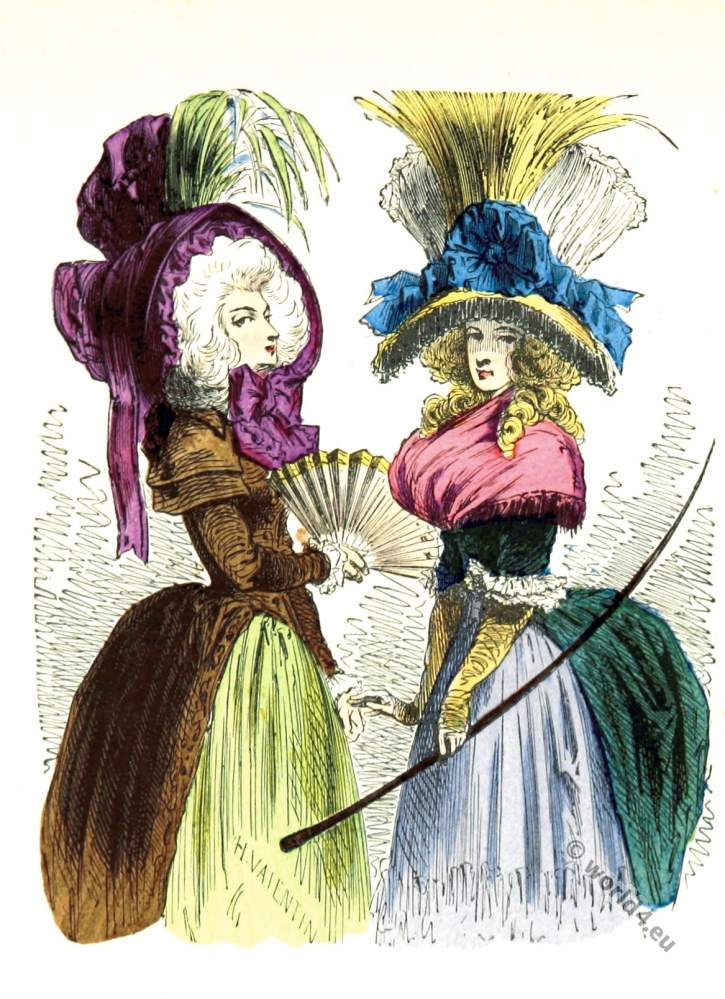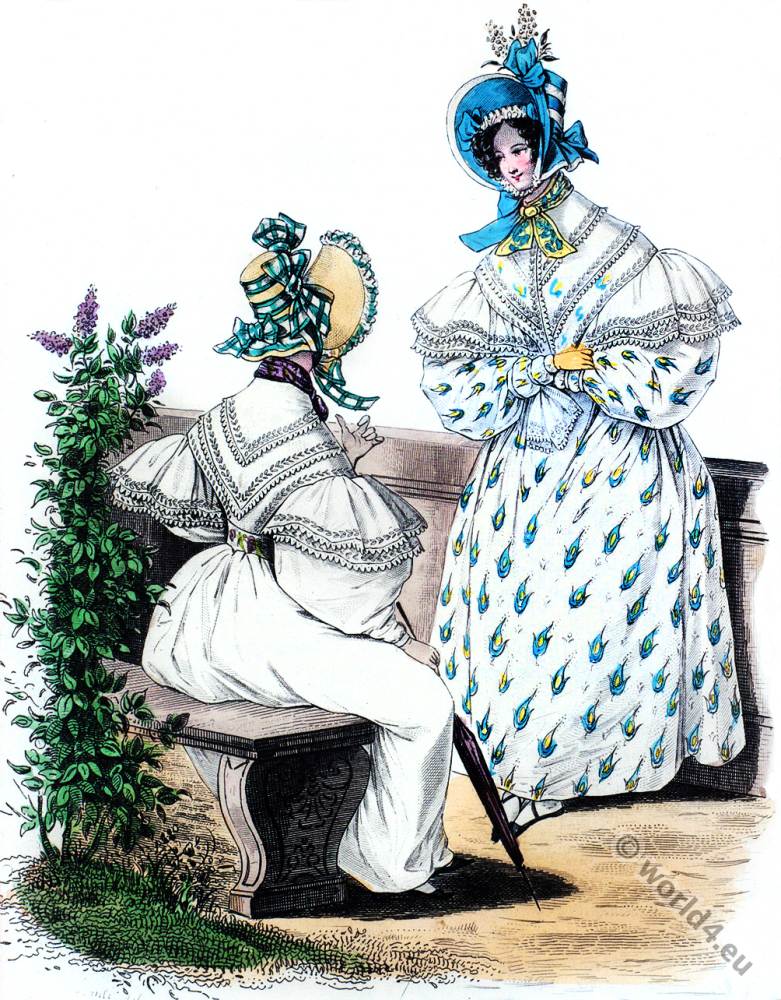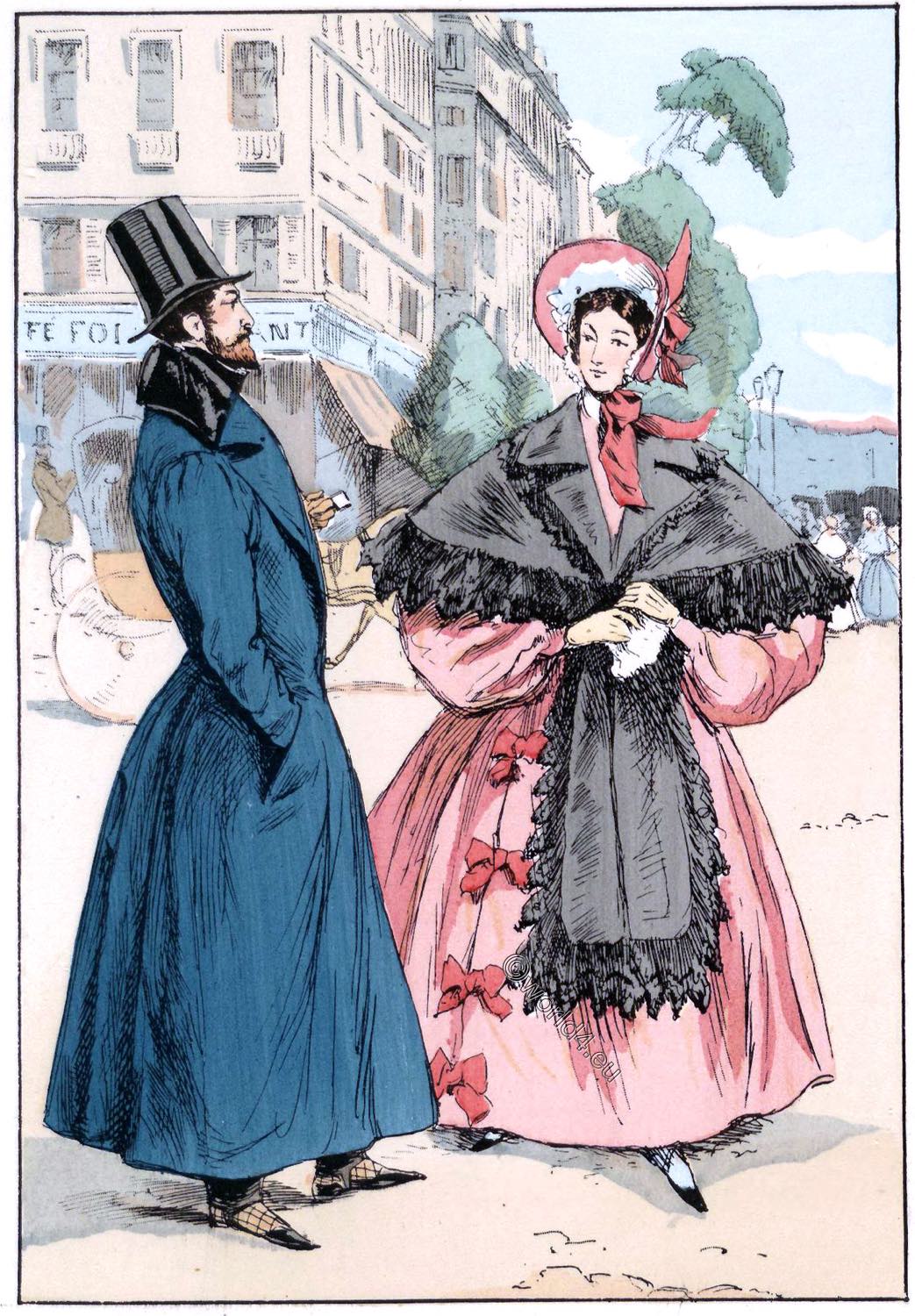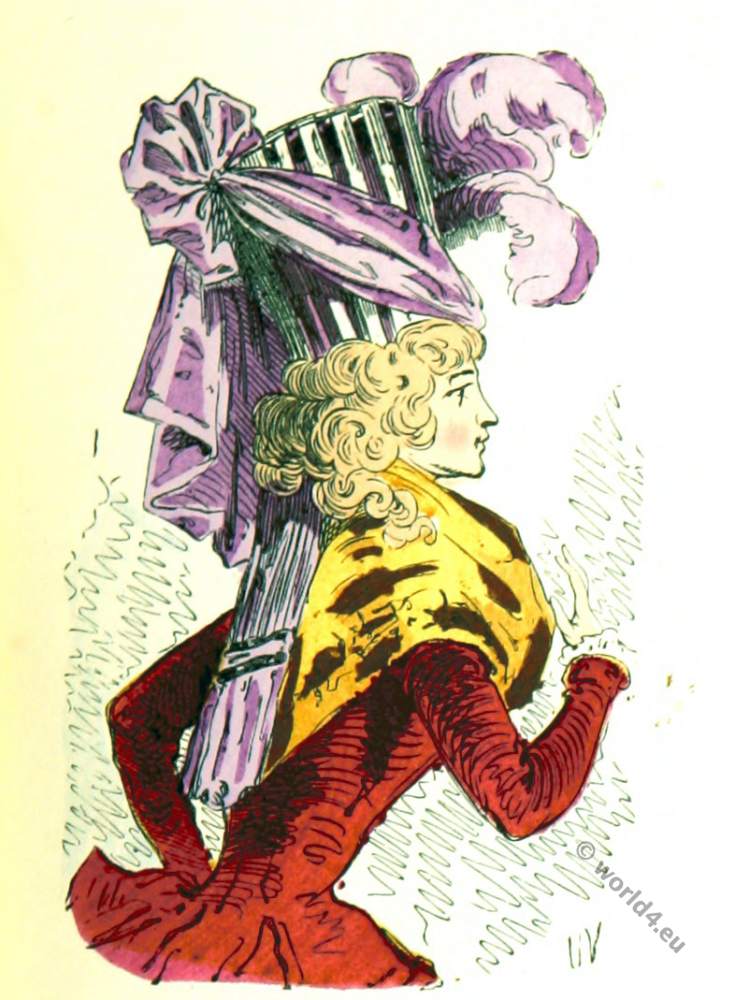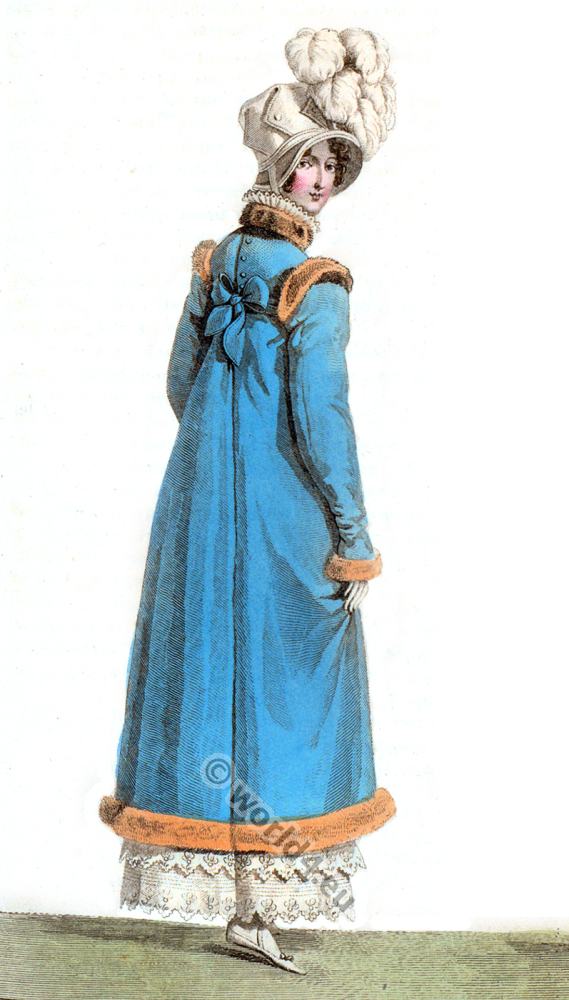Chapeau báteau-renversé en 1787.
(Rococo fashion. Modes de Paris. French Ancien Régime era.)
Source: Paris à travers les siècles. Histoire nationale de Paris et des Parisiens depuis la fondation de Lutèce jusqu’à nos jours, by Nicolas Jules Henri Gourdon de Genouillac. Published 1879.
Continuing
Discover more from World4 Costume Culture History
Subscribe to get the latest posts sent to your email.

